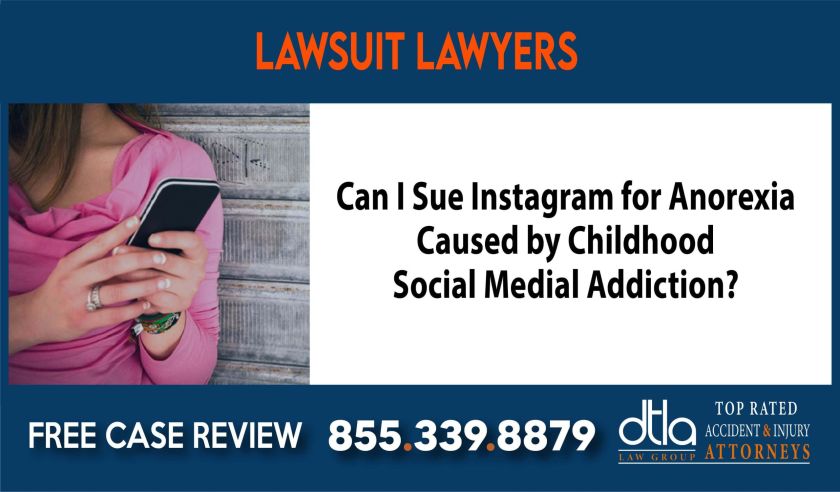Can I Sue Instagram for Anorexia Caused by Childhood Social Medial Addiction?
Did your child develop anorexia due to pro-eating disorder content on Instagram? Are you a victim of childhood social media addiction, who has been diagnosed with anorexia nervosa? Sadly, this is a very common issue for users of Instagram, where people can easily access disordered eating images and videos through hashtags like #thinspiration.
Once a child is hooked on this “way of life,” it’s extremely difficult to reorient their way of thinking and prevent them from lifelong health complications, or even death. Instagram and other social medial companies pride themselves on policies that protect underage users from dangerous content. But we know for a fact that Instagram actively promoted this type of content starting around 2016. With the onslaught of imagery, posts, comments, and DMs kids come across, it’s no wonder that so many of them have been permanently damaged by eating disorders, body dysphoria, and suicidal thoughts.
If you or your child is a victim of childhood social media addiction causing anorexia, bulimia, suicide or attempted suicide, you may have the right to file a personal injury or wrongful death lawsuit against Instagram. If you would like more information on suing a social media site for an eating disorder, contact our office as soon as possible.

$1.93 Million
$2,287,495
$54 Million
$22 Million
$600,000
$965,000
Assaulted By Employee
$1,900,000
$1,975,000
What is Anorexia Nervosa?
Anorexia, officially known as anorexia nervosa, is an eating disorder that’s characterized by:
- An irrational fear of gaining weight
- Distorted body image (for example, thinking you are fat or that you’ve gained weight when the opposite is true)
- Engaging in harmful behaviors to restrict calories and control one’s weight
Harmful behaviors for someone with anorexia include skipping meals, eating very small portions, making yourself throw up after eating, and taking laxatives. In spite of the obsession with weight, anorexia isn’t actually about food. Rather, it’s a way to feel in control and cope with emotional trauma. This can happen from various incidents in a child’s life, including a divorce, death of a loved one, or bullying at school.
Anorexia nervosa occurs more frequently among females than males, though an increasing number of boys are starting to develop the diseases. This, also, is where you see the link between body image disorders and social media content. At any rate, teens are most vulnerable to eating disorders because their bodies are going through changes that they don’t fully understand. There is also increased social pressure among teens to look a certain way due to their obsession with celebrities and Instagram influencers.
Specifically with Instagram, there is a tendency to focus on imagery – the perfect selfie, the chiseled pecs, an impossibly tiny waistline. In the quest to improve their self-image and find happiness, these children develop potentially fatal habits, which is why it’s essential to protect minors from pro-ana (anorexia) content. And yes, parents have to be responsible for what their kids do online, but it doesn’t help when social media companies knowingly feed these images to kids, thus furthering their psychological trauma and disordered thinking.
How Instagram Contributed to Eating Disorders among Children
Self-esteem and feeling confident in your own skin is a major problem for many children, and the onslaught of “beautiful” people on social media only makes things worse. We know from years of research that Instagram and other image-focused sites contribute to harmful eating habits, especially for teenage girls.
Impressionable children don’t stop to think about Photoshop and other software that can change the way you look. All they see is post after post of skinny and flawless influencers, who look like they’re having the time of their lives. These photos are coupled with ads for diet teas, workouts, and other ways to keep the pounds off. It’s no wonder that so many children within the past few years have severe psychological trauma that has resulted in suicide attempts, starvation, and other dangerous behaviors.
Instagram and similar social media sites have contributed to the rising rate of eating disorders among kids in several ways:
- Providing a fun and easy-to-use platform to promote pro-anorexia and bulimia content to minors.
- Failing to provide safeguards that can prevent children from accessing this type of content.
- Using advanced algorithms to perpetuate negative / unrealistic goals for body weight and fitness, while knowing that these images are being accessed by underage individuals.
One also has to think about the comments section and the messaging capabilities on social media sites. Vicious remarks and harassment over one’s looks, weight, etc., can drive children to engage in disordered eating habits, like frequently skipping meals, eating only “safe,” low calorie foods, and chewing food and spitting it out.
Can I Sue Instagram for Social Media Addiction that Led to an Eating Disorder?
Yes, it’s possible to sue Instagram or another social media platform if their negligence caused an underage user to access content that resulted in an eating disorder. With Instagram, adults are generally aware that people use all sorts of filters and software to doctor their images. Typically, they make themselves thinner or more chiseled, and erase any imperfections on their skin. But kids don’t know that this is all a façade, and as a result, they believe that looking like these images is attainable. Even worse, if they fail to look like their favorite influencer or celebrity, they are not trying hard enough.
Shockingly, Instagram knew about this problem for years and held meetings on the increasing rate of minors accessing pro-and and pro-mia (bulimia) content on their platform. Yet, they’ve done very little to protect kids that use their app, and even recommend accounts with names like “Eternally Starved” to children as young as 13.
Instagram has clearly been negligent in their duty of care to underage users, and those who were affected by their actions are entitled to justice. A lawsuit for social media harm can help you obtain medical expenses, emotional distress, and other monetary payments. However, social media and eating disorder lawsuits are extremely complicated legal actions, so it’s in your best interest to seek help from an experienced social media addiction attorney.
Average Value of an Eating Disorder Lawsuit against Instagram
A lawsuit for anorexia due to negligence by a social media site can settle for $10,000 to $2,000,000, depending on the degree of injury, misconduct by the defendant, and many other factors. Based on our experience, the majority of lawsuits involving long-term health compilations for a child are settled for $200,000 to over $1,000,000. In the event your child passed away from complications caused by anorexia, you may receive $2,000,000 to $5,000,000 from a wrongful death lawsuit.
Payments are based on a combination of bodily harm and emotional trauma caused by uninhibited exposure to imagery, videos, and other content on a social media site. Depending on the degree of negligence by Instagram, you may receive additional compensation in the form of punitive damages. No matter what, there is no denying that an eating disorder has permanent consequences, and most victims need therapy and medical treatment for the rest of their lives. This is why compensation awards are typically in the 6 to 7-figure range for eating disorders caused by social media lawsuits.
How Long Do these Cases Take to Settle?
It takes anywhere from 6 to 24 months to settle a childhood addiction to social media lawsuit. Due to the complexity of disorders like anorexia and the physical and emotional harm to the victim, most of these lawsuits take 1 to 2 years. If we cannot settle your lawsuit through direct negotiations and your case goes to trial, the legal process can take 3 or more years from start to finish. However, it’s worth noting that only a small fraction of these cases are tried in court.
There are many issues that contribute to the length of time to settle an Instagram eating disorder lawsuit, which we can talk to you about in detail during a free consultation.
Statute of Limitations to File a Lawsuit against Instagram
If you are eligible for a personal injury or wrongful death lawsuit against Instagram, you must take action within 2 years from the date of injury (diagnosis) or date of death. If you miss the 2-year window for a lawsuit, you will be prohibited from suing Instagram for monetary damages, so please don’t wait to contact a social media eating disorder attorney.
In some cases, the statute of limitations can be tolled, meaning you will have a longer amount of time to file a lawsuit for social media addiction causing anorexia lawsuit. For example, those who were minors at the time of injury have 2 years after they turn 18 to file a personal injury claim. As you can see, there are various complications that can affect the time limit for a social media eating disorder lawsuit. If you would like to verify the deadline to sue Instagram for promoting anorexia-related content, don’t hesitate to give us a call.
Contact DTLA Law Group
Like anything we use online, social media platforms have their share of pros and cons. However, sites like Instagram have knowingly disseminated harmful content to children, while refusing to make modifications that can prevent kids from seeing images, messages, and videos related to eating disorders.
If you or your child has been treated for an eating disorder that was connected to Instagram, we can help you sue the company for medical expenses, pain and suffering, and other monetary losses. We will represent you for $0 and wait until the end of your case to receive payment. Since we only get paid by recovering your settlement, you owe us absolutely nothing if we fail to win your case.
Contact our law firm and speak to a lawyer who can help you sue Instagram for childhood media addiction causing anorexia nervosa or another eating disorder.
Other Pages on Our Website Related to This Topic
Suing TikTok for Childhood Media Addiction Causing Bulimia – Lawsuit Attorney










